
1.11.2025
Justin Henry, General Manager of STILE Downtown Los Angeles by Kasa, brings a unique blend of experience to his role, having navigated the worlds of both traditional luxury hotels and innovative hospitality startups. His career has taken him from the structured environment of Hyatt to the creative disruption of Cabana, and the iconic Chateau Marmont, giving him a well-rounded perspective on the evolving landscape of the hospitality industry.
At STILE DTLA, housed in the historic United Artists building in the heart of Downtown Los Angeles, Henry is tasked with blending the charm of a historic property with the seamless convenience of modern technology. This reimagined hotel, formerly the Ace Hotel Downtown Los Angeles, aims to cater to the modern traveler while honoring the building’s rich artistic legacy.
In this Spotlight Interview, Henry discusses his career journey, the unique challenges and opportunities of managing STILE DTLA, and the integral role technology plays in shaping the guest experience. He delves into Kasa Living’s tech-enabled approach to hospitality, the specific technologies implemented at STILE DTLA, and his vision for the future of the hotel.
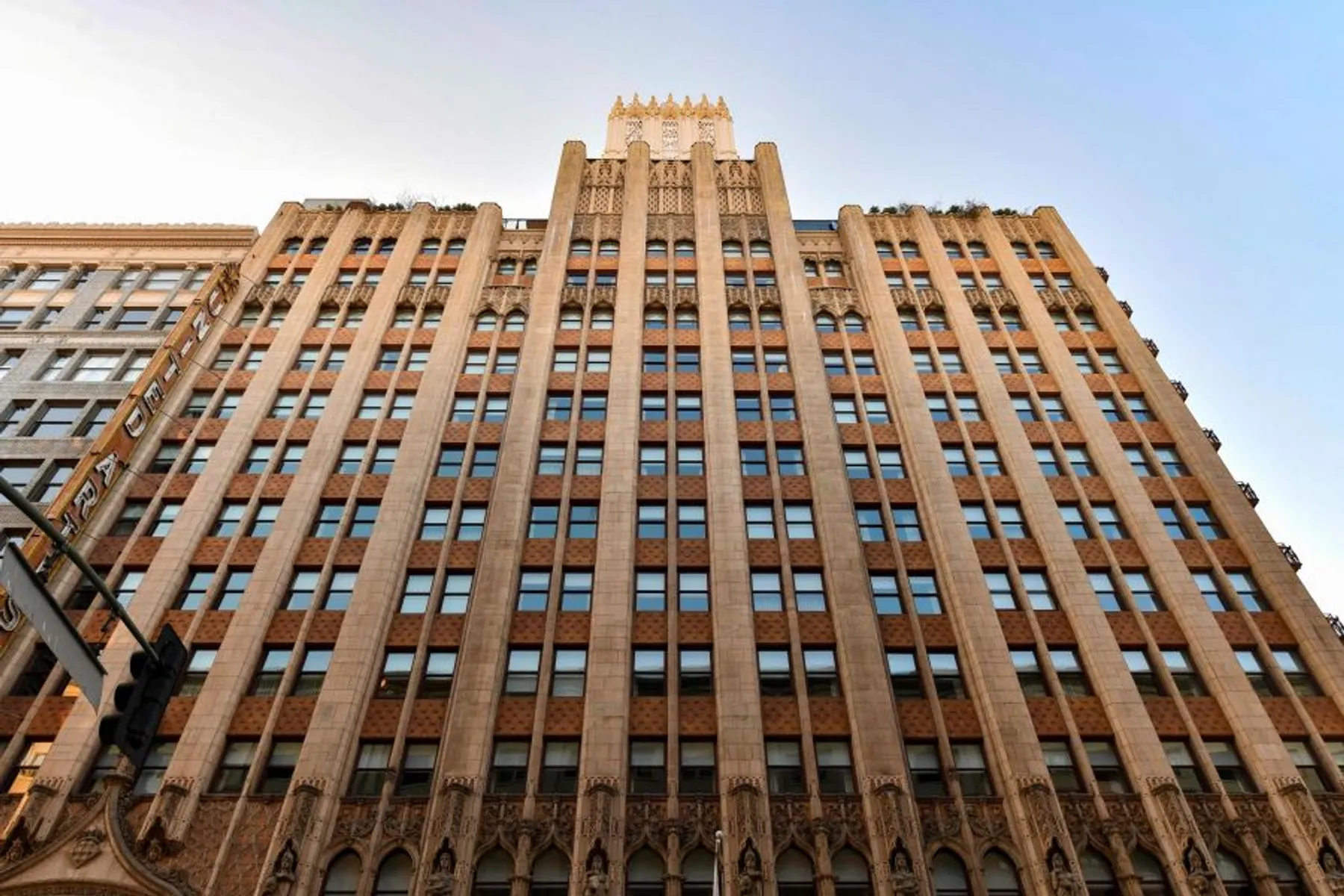
You’ve had a diverse career in hospitality, from traditional hotels like Hyatt and Chateau Marmont to innovative startups like Cabana. How has this experience shaped your approach to hotel management?
My diverse background in the industry has helped me become a well rounded leader. I started out my career with Hyatt, which as I’m sure you know, is very well known for their very structured and detailed training programs. Working for Hyatt for over 10 years taught me the “why” behind everything that we do when it comes to hotel operations and also how we engage with colleagues and guests.
When I transitioned to Cabana; a small, innovative tech hospitality start-up, I was absolutely terrified. It was the complete opposite of everything I knew, professionally. But that leap of faith taught me a whole new set of skills which revolve around creative thinking and being able to take several avenues to complete a task at hand.
Working at Chateau Marmont was a great opportunity to mix the 2 together. Chateau Marmont is truly a one-of-a-kind hotel in terms of the way it operates on a daily basis to the guests visiting the hotel. It was still very much a hotel, but being a small, privately owned hotel [by Andre Balazs,] it inspired creativity and has a sense of start-up culture to it. If you know anything about Andre, you know that he is a genius when it comes to creating an ambiance and vibe at his hotels. It helped me understand the importance of everything from the lighting and the paint colors to the storied staff members that maintain the culture and lust that people have for Chateau.
Having had the pleasure to experience an array of different types of hospitality has allowed me the opportunity to apply bits and pieces from my experience into my current role and truly get to know my guests’ and anticipate their needs and expectations.
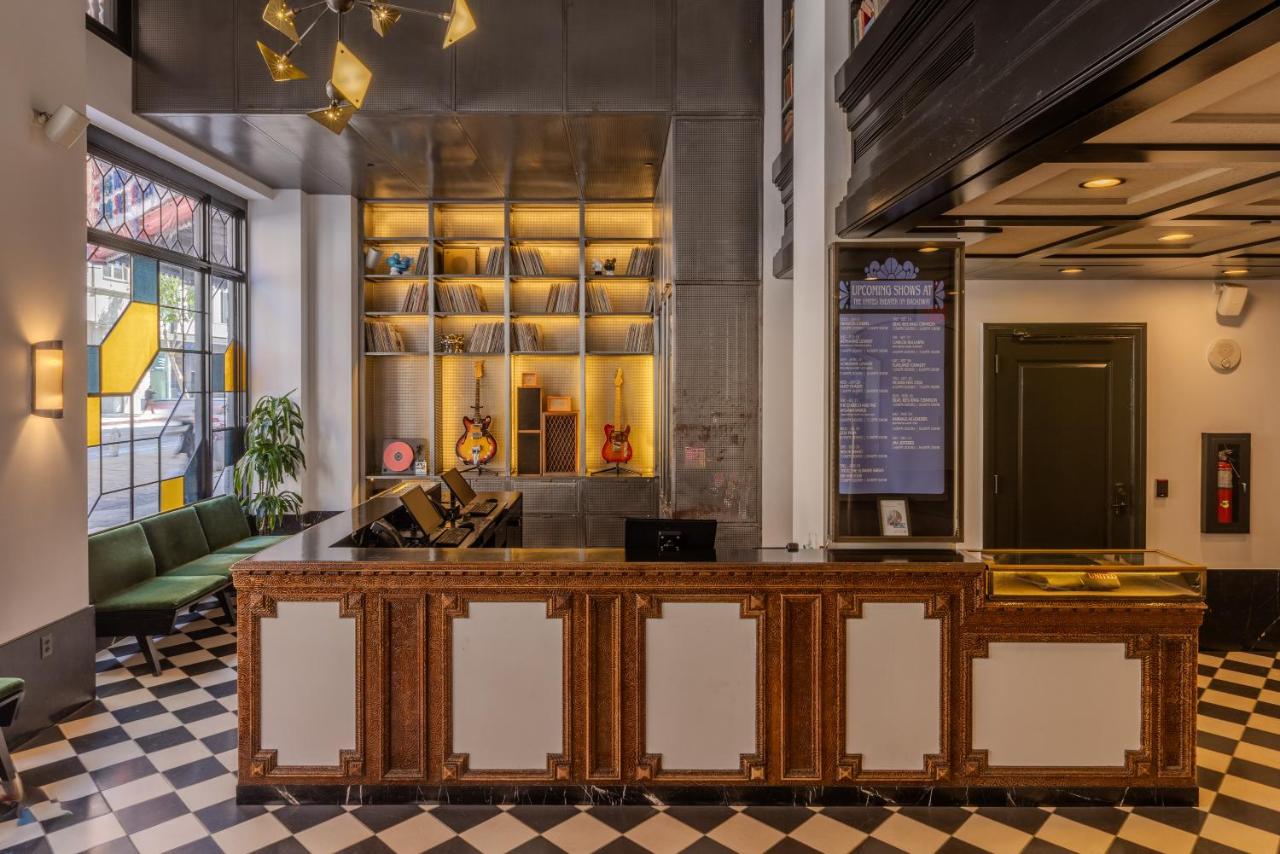
What drew you to the role of General Manager at STILE DTLA by Kasa?
I had heard of Kasa about a year prior to me becoming the GM for STILE and loved the business model. Due to my experience of working in start-ups and privately owned hotels, I knew I wanted something different than your run-of-the-mill corporate box hotel. Kasa mixes that blend of creative start-up culture, and still scratches my itch for hospitality. Luckily for me, STILE is a first of its kind for Kasa, mixing the Kasa business model with the traditional, full-scale hotel. It comes with an all new set of challenges for me. But it also comes with opportunities to create memorable experiences for my guests and employees of the hotel, which I love most about hospitality. For me, it’s a pretty perfect mix and it’s exactly what I was after in my next role.
How would you describe the STILE DTLA by Kasa brand and its target audience?
Our historic building and iconic theater are beloved landmarks in Downtown Los Angeles. While honoring that legacy, we’ve reimagined the experience to cater to the modern-day nomad. Of course, the hotel is a tech-enabled experience that focuses around safety and ease of access to the hotel and various amenity spaces. We’re also very art forward, showcasing different artworks throughout the hotel as well as hosting cultural programming events, hosting local artists and musicians to share their craft with hotel guests and locals.
Partnering with Sauced, a Brooklyn-based wine bar, we’ve activated our rooftop in a really fun way. Sauced brings an expertly curated selection of natural wines and a passionate team to enhance our guest experience. By blending DJ sets, pop-up chefs, and exceptional wines, we’ve created a dynamic space that unites the hotel, theater, and rooftop bar into a seamless, vibrant experience. Each component of the property works in harmony, creating a dynamic synergy among our outlets. This virtuous cycle of experiences and amenities allows our partners to thrive and elevate each other.
What are the unique challenges and opportunities of managing a historic property like STILE DTLA?
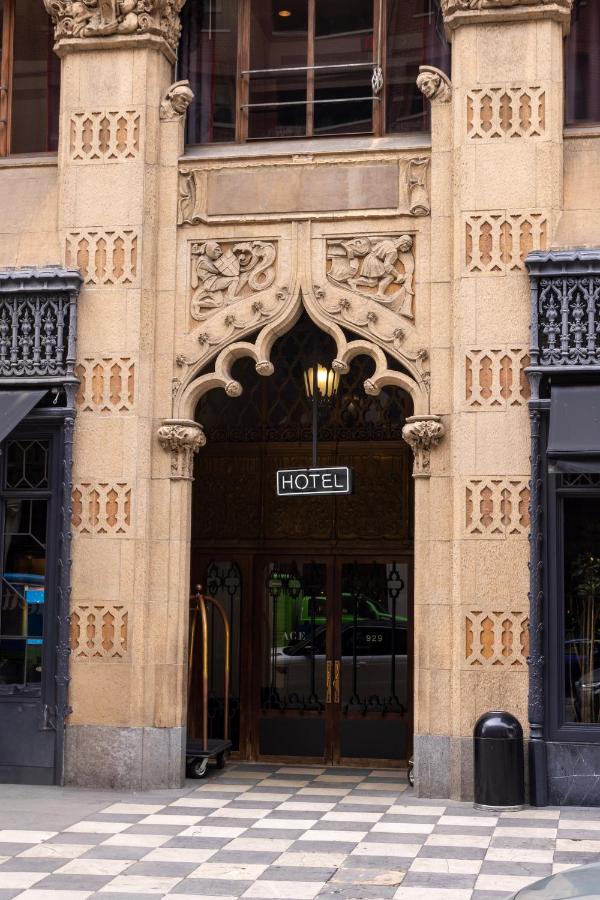 Have you ever heard the saying “They don’t make them like they used to?” I can confirm – it’s true! Because the building was built in the 1920’s, many of the original parts and pieces of the building are completely obsolete. As I’m sure you can imagine, this can make it quite expensive to replace or repair items, and even difficult to find something comparable. It takes a very skilled Maintenance Engineering team on-site to be able to source more modern parts, but to learn the quirks of a historic building that’s almost 100 years old. But it’s ok, we wouldn’t have it any other way – we can get to enjoy the beautiful architecture and history on a daily basis!
Have you ever heard the saying “They don’t make them like they used to?” I can confirm – it’s true! Because the building was built in the 1920’s, many of the original parts and pieces of the building are completely obsolete. As I’m sure you can imagine, this can make it quite expensive to replace or repair items, and even difficult to find something comparable. It takes a very skilled Maintenance Engineering team on-site to be able to source more modern parts, but to learn the quirks of a historic building that’s almost 100 years old. But it’s ok, we wouldn’t have it any other way – we can get to enjoy the beautiful architecture and history on a daily basis!
Kasa Living is known for its tech-enabled approach to hospitality. How is technology integrated into the guest experience at STILE DTLA?
Kasa’s business model revolves around the safety and security of our guests, along with ease of access to the hotel and its various amenity spaces, creating an enjoyable, care free stay with everything you need at your fingertips. Each guest receives a unique code for access to the hotel, their guest room, the gym and the pool. We have what is called a Virtual Front Desk for guests to utilize prior to their arrival all the way through to the end of their stay. We offer 24/7 guest support through our Guest Experience team. All of these forms of technology allow our guests to have as interactive or reclusive of an experience as they’d like.
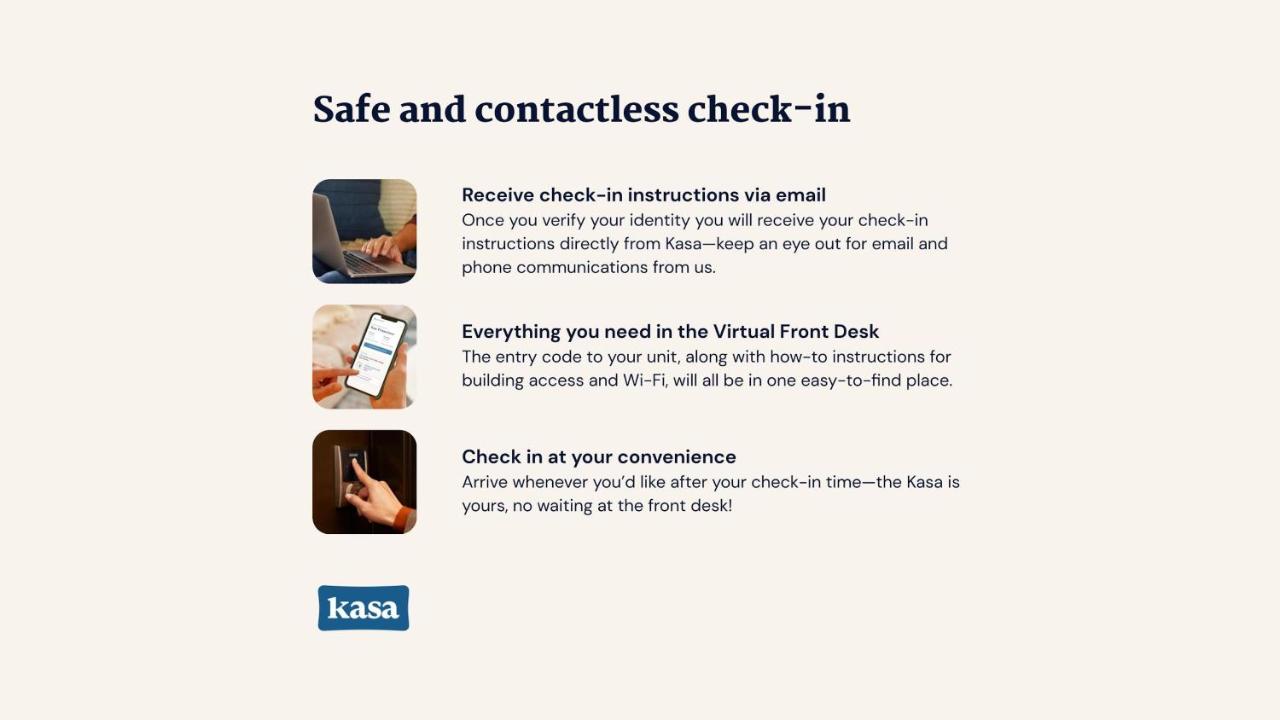
Can you elaborate on the specific technologies used, such as the self check-in process, the Virtual Front Desk, and 24/7 guest support?
This is a loaded question! We have quite a few different technologies that we use, and the most fun part of it is that most of it is built out by our internal tech team at Kasa. To access the building, guest rooms, and amenity spaces, each guest is provided a code that is unique to them on their reservation. Everything is all synchronized through software programs built by Kasa to allow each program to speak to each other. Additionally, all guest rooms have iOT devices that monitor noise decibels and smoke presence. This ensures our guests are being respectful of their neighboring guests, our employees and the asset itself.
The Virtual Front Desk acts as just that – a one-stop-shop for the guests’ reservation. This Virtual Front Desk gives them visibility to see their reservation dates, room number, instructions for parking, directions to the various amenities offered, hours of operation for our coffee bar, pool and rooftop bar, and even recommendations for dining, nightlife, shopping and entertainment in the local area. This process verifies the identity of the guest and, once completed will authorize their reservation.
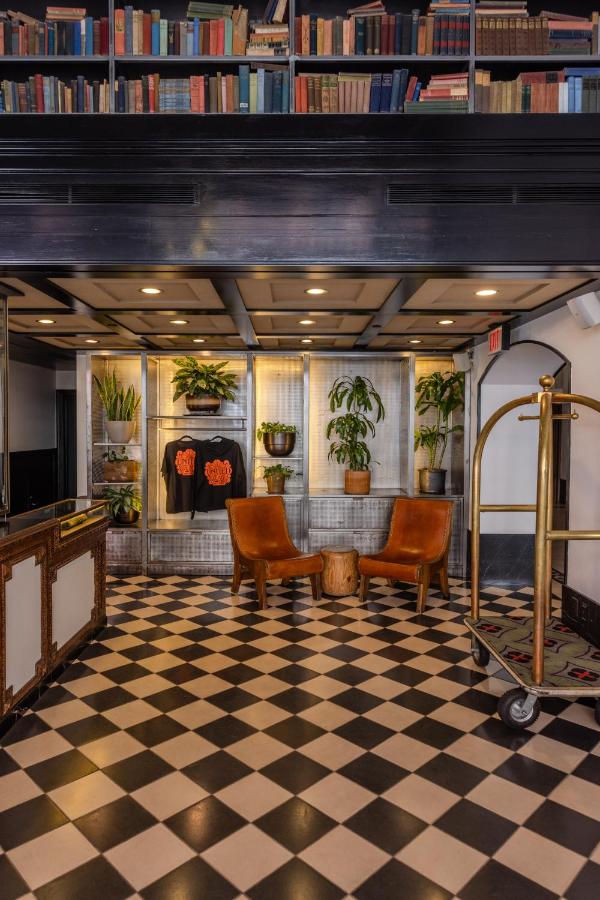 At check-in time, the guest will receive their access codes and be able to enter the building and their guest room. They can also request to have an early check-in, have a later check out, or anything else they need throughout their stay while virtually talking to one of Kasa’s guest experience associates in real time. It makes it a seamless experience for our guests. One key thing to note is that while we do offer 24/7 guest support through the Virtual Front Desk, we also understand that there are travelers who appreciate a more traditional approach to hotels. Because of that, we do have a Hospitality team who works on-site to act as a Guest Services team at the property. Who doesn’t like to have options?
At check-in time, the guest will receive their access codes and be able to enter the building and their guest room. They can also request to have an early check-in, have a later check out, or anything else they need throughout their stay while virtually talking to one of Kasa’s guest experience associates in real time. It makes it a seamless experience for our guests. One key thing to note is that while we do offer 24/7 guest support through the Virtual Front Desk, we also understand that there are travelers who appreciate a more traditional approach to hotels. Because of that, we do have a Hospitality team who works on-site to act as a Guest Services team at the property. Who doesn’t like to have options?
What has been the guest feedback on these technology-driven features?
They are very well received. Many guests appreciate the fact that not just anybody can access the building. Additionally, when you’re just getting in the shower and realize you forgot your razor, who wants to get completely dressed and walk back downstairs to pick it up? It’s easy to just send a text from your phone and have our team deliver it and leave it at the door. Our guests enjoy being able to request just about anything from their mobile device.
How has Kasa’s proprietary technology stack and centralized operations impacted efficiency and cost savings at STILE DTLA?
It has a massive impact on both efficiency and cost savings! Now, for the traditional Kasa property, which is more like a short-term rental concept, but rented out as a more extended stay hotel in an apartment (or apartment-like building,) they require only a few people to operate. At STILE however, we are a 182 room hotel. Even at only 182 rooms, a traditionally operated hotel would still require quite a large staff to operate the entire hotel. With Kasa’s business model, we technically don’t need Front Desk staff, but, like previously mentioned, some guests do appreciate somebody on-site to assist rather than using their mobile device. Because of this, we do have a small but mighty Hospitality team.
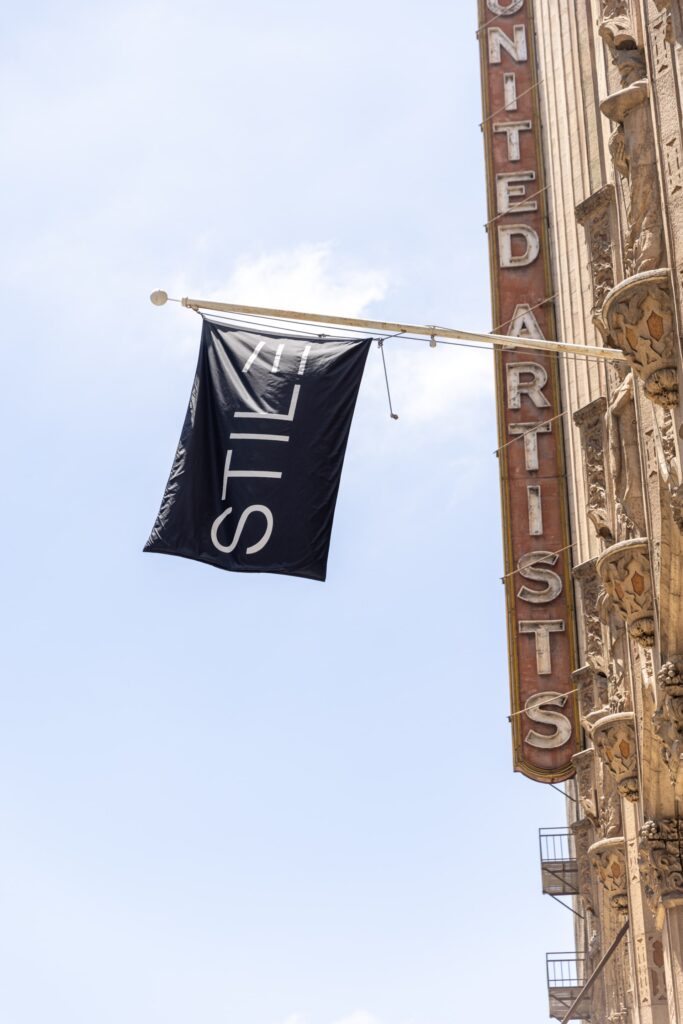 We have our experts in Housekeeping to ensure our rooms are clean and prepared for our guests and of course, we have our Maintenance Engineers who we couldn’t operate without. We also have a small security team for the fact that we are in a downtown setting, for added security, we ensure that we have security on-site at all times of the day. Otherwise, the bulk of our team is through Kasa directly to handle reservations, billing, guest services, trust and safety. Kasa is excellent in being able to operate full buildings with minimal staff without compromising the guest experience. As you can imagine, this makes property owners very pleased because it slashes labor costs significantly, without compromising the level or service for our guests.
We have our experts in Housekeeping to ensure our rooms are clean and prepared for our guests and of course, we have our Maintenance Engineers who we couldn’t operate without. We also have a small security team for the fact that we are in a downtown setting, for added security, we ensure that we have security on-site at all times of the day. Otherwise, the bulk of our team is through Kasa directly to handle reservations, billing, guest services, trust and safety. Kasa is excellent in being able to operate full buildings with minimal staff without compromising the guest experience. As you can imagine, this makes property owners very pleased because it slashes labor costs significantly, without compromising the level or service for our guests.
What are some of the key metrics that you track to measure the success of your technology implementations?
The two biggest things I focus on are pretty simple. Guest feedback is the most valuable piece of data any hotel can hope for. Your guests know best and that is the most important tool we can use to determine what works and what doesn’t. My second is the labor costs and ensuring that we are fully covered operationally but still significantly scaling back on labor costs that a traditional hotel would have.
How do you see technology enhancing the guest experience, and what role does personalization play in this process?
Let’s face it – in this day and age, it is instilled in us to be glued to our devices. Being able to do a whole hotel stay using technology makes it the easiest check in. The feeling after a long flight to LAX and then sitting in traffic for an hour to get to your hotel can be a bit daunting. Being able to just roll your bags in, find your room and get in right away makes it so enjoyable. No lines, no waits, just an easy arrival. On the flip side, for our guests who love to engage, they can stop by the front desk to get the low-down on STILE and DTLA and meet our Hospitality experts who are always eager to engage with our guests.
We have the ability to send out communication to all, or a specific number of guests for any messaging prior to their arrival or during their stay. This can help us communicate local events, programming events in the hotel, shows going on at our theater, DJ’s and pop up chef announcements at the wine bar or lobby bar. It allows us to engage with our guests even before they step foot in our hotel which gives us an advantage in providing personalized service.
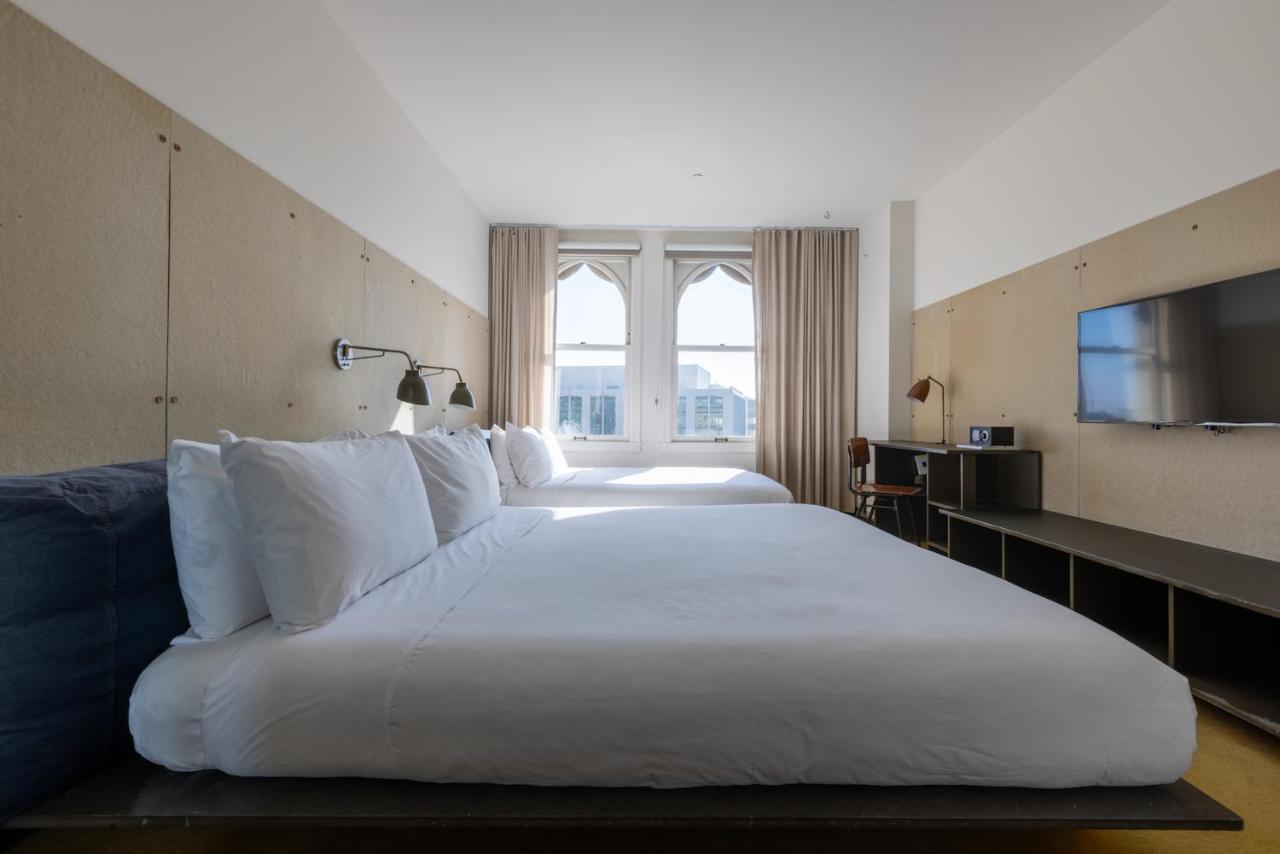
How do you balance the use of technology with the human touch in providing exceptional hospitality?
As we know, technology is the future of hospitality. But the key element to hospitality is human touch. Our business model implements the use of technology, but ultimately allows the guest to determine how much or little human interaction they’d like. If a guest has a favorite snack, or a preferred view, or they’re huge Lakers fans….we try our best to obtain this information and make memorable experiences with what we know about our guests. We use technology as a tool to supply an easy experience, but also to find out how we can fine-tune the stay so that it’s catered to each unique individual. After all, true hospitality looks different to each person and it’s all about finding out those specific things that create a “wow” moment.
What are some of the ways you use technology to gather and respond to guest feedback?
Throughout the stay, we send each guest a text, checking in on them along the way. Guests are not obligated to respond, but it opens up the floor for any feedback. After arriving, we inquire about the arrival experience. And then again about their guest room, and post-departure, we inquire about their stay overall. This feedback is monitored by our Guest Experience team as well as our on-site team. Each response is recorded and if there is any negative feedback, it allows for our on-site team to make the situation right for the guest. This feedback is invaluable to us and helps us gauge our overall operation’s success. We take it very seriously and we want to use it to our advantage to act proactively in anticipating our guests’ needs for all of our guests who come to visit us.
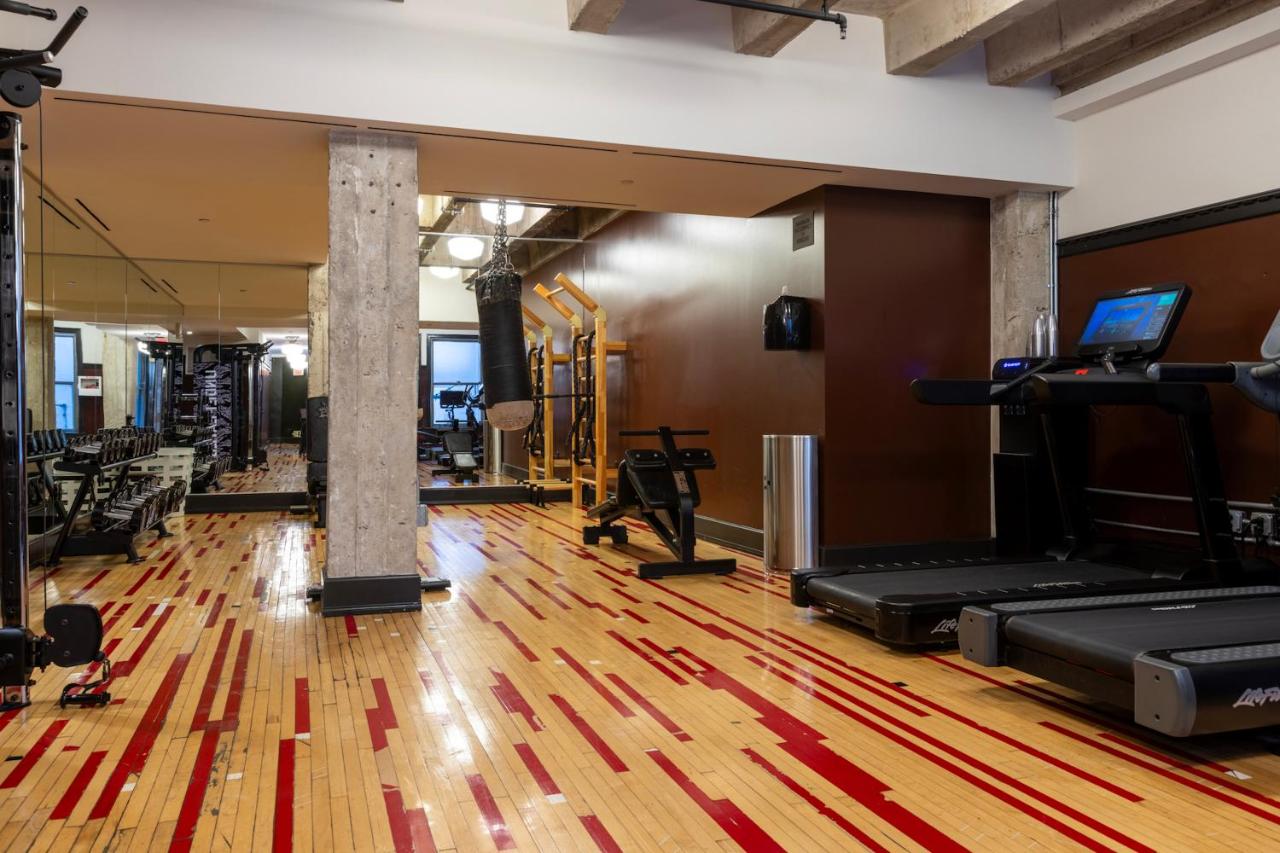
STILE DTLA emphasizes sustainability in its design and operations. How does technology contribute to the hotel’s sustainability initiatives?
Technology plays a massive role in our commitment to sustainability. First and foremost, the most obvious…we don’t use keycards for guests to access their rooms. By utilizing a personalized code for guest room access, this means we don’t see ourselves in a constant cycle of ordering plastic room keys and key card packets (also, a huge savings on operating cost!)
On a housekeeping level, guests have the option to opt out of daily Housekeeping service through their Virtual Front Desk. We understand that daily housekeeping service is typically expected at hotels, so we happily offer daily service to all guests in-house. But, the “do not disturb” option in the Virtual Front Desk is a way to inspire people to be more sustainable about not having to wash linens as often, minimizing water and energy consumption when the guest wishes to do so.
All billing is handled through our experts at Kasa. This means we don’t deliver printed folios to all guests on the morning of their departure. Instead, guests can view and download a copy of their folio on the Virtual Front Desk. We also don’t use in-room card stock and instead our guest room compendium lives in the Virtual Front Desk. Guests can view information about the hotel, amenities offered, concierge recommendations of local restaurants, shopping, night life and more all through the Virtual Front Desk. These efforts limit the amount of printing we do at the hotel and drastically minimizes paper and ink consumption.
How do you see the role of sustainability evolving in the hospitality industry, and how is STILE DTLA preparing for these changes?
Very unfortunately, hotels worldwide are a massive contributing factor to global carbon emissions. Certain areas of the world are doing some great things to help combat this issue without compromising the overall guest experience or product. California, for one, has passed some really great efforts banning single-use plastics. Recycling/repurposing soaps by donations to organizations such as Clean The World are also truly amazing. But, even in 2024, many hotels lack the technology to really make an impact on carbon emissions. Given that we are managed by a tech-hospitality company, there are always some incredible ideas being brainstormed to push our efforts towards sustainability even further. It is something we are very committed to.
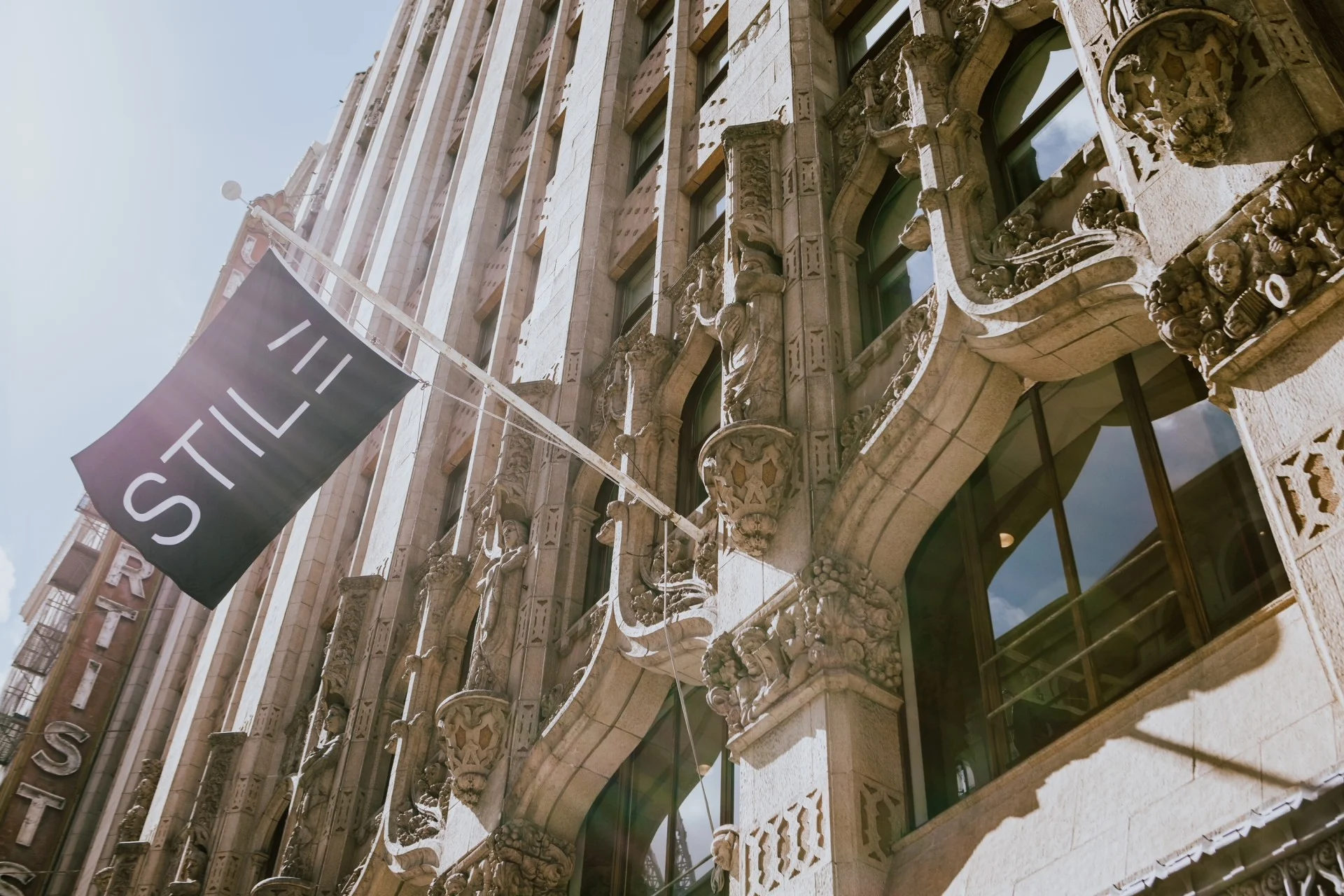
What are your key priorities as General Manager, and how do you balance maintaining the hotel’s historic charm with implementing modern technology?
My role requires me to focus on many different areas of the business. Most obviously, I have a commitment to our ownership, Aju Continuum, to ensure financial success but also to make their vision for STILE a reality. I also prioritize seeing through to Kasa’s values and company culture are instilled in our daily workday at the hotel. Equally as important as those priorities, my job as General Manager of STILE DTLA is to create a happy and safe work experience for all of our employees and memorable experiences for every guest that walks through our doors.
The blend of historic charm with modern technology really is all about having a good balance. This building has a very unique design to it that is pretty multi-faceted. Of course, you see and feel the historic charm of the building; from the facade of the building and the details of faces etched in the exterior of the building, to the architecture inside with all of these gorgeous archways and crown molding. But you go to many of the other areas of the hotel and you get this quintessential Downtown LA-urban-loft vibe with lots of exposed concrete ceilings and walls.
Given the mix of design elements, it actually makes it easier to balance the modern technology in such a historic building. We celebrate the history and culture at our hotel, sharing the stories of Charlie Chaplin, Mary Pickford, Douglas Fairbanks and D.W. Griffith; The United Artists who built the theater and hotel and their vision for their theater (now the United Theater right here in STILE DTLA.) But we also like to focus on the present and future of hospitality with our guests security and experience in mind.
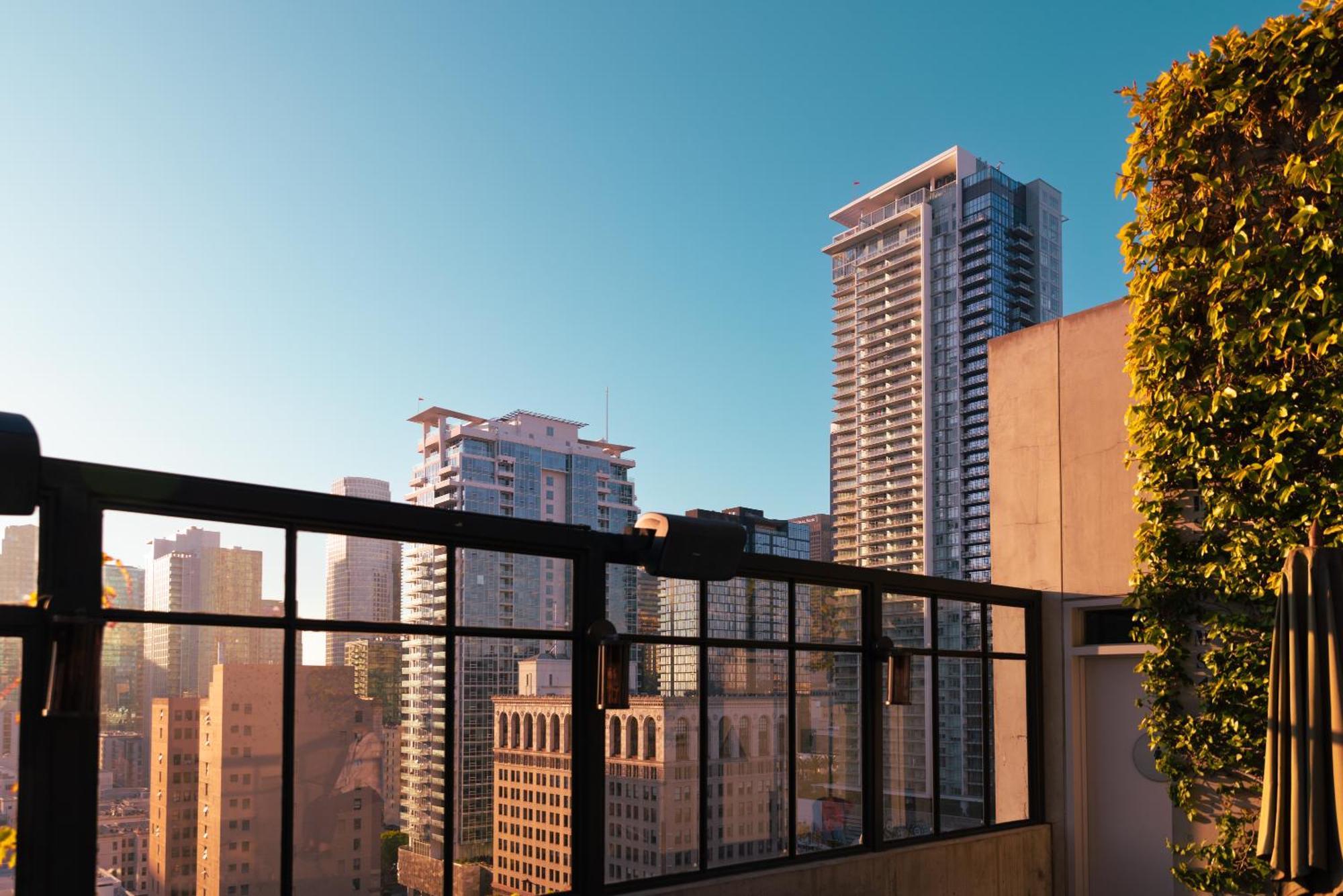
What are your long-term goals for STILE DTLA, and how do you see technology contributing to the hotel’s future success?
This building has such a rich history of the arts, specifically old Hollywood. We want to foster a culture of being a beloved neighborhood staple for locals and travelers, alike. Somebody in the neighborhood to come visit a programming event and grab a night cap on the rooftop at Sauced. A traveler whose first thought the second they walk through the front door of STILE is “let’s see who’s performing at The United Theater tonight!” We want to be a cultural hub of art; both physical and musical. In essence, a creative playground for people to experience multiple forms of entertainment all under one roof.
Our property management systems and technological tools help us obtain this by captivating an audience at the hotel of something new and different. Additionally, our ability to engage with our guests virtually and physically gives us an edge to keep our guests up-to-date on the fun things going on at STILE.
What advice would you give to other hoteliers who are looking to leverage technology to enhance the guest experience and improve their operations?
Be patient! Take notes. Listen to your guests. Understand your desired result and then determine what has to be done to obtain that end result.
While Kasa has been in the game for quite a while, STILE DTLA is a first of its kind within the Kasa world. I mean that because STILE is Kasa’s first full-scale hotel. Kasa has practically perfected the overall operation in these smaller scale properties of a traditional Kasa. So, opening up STILE as the GM, it took a lot of observation. What works? What doesn’t work? What would need to be tweaked for this to be more efficient?
Luckily, the team at Kasa are some of the most intelligent people I’ve worked with at any job. With their skills, we’ve been able to adjust the operation at STILE to make more sense for our guests and employees, which may vastly differ from other Kasa properties.
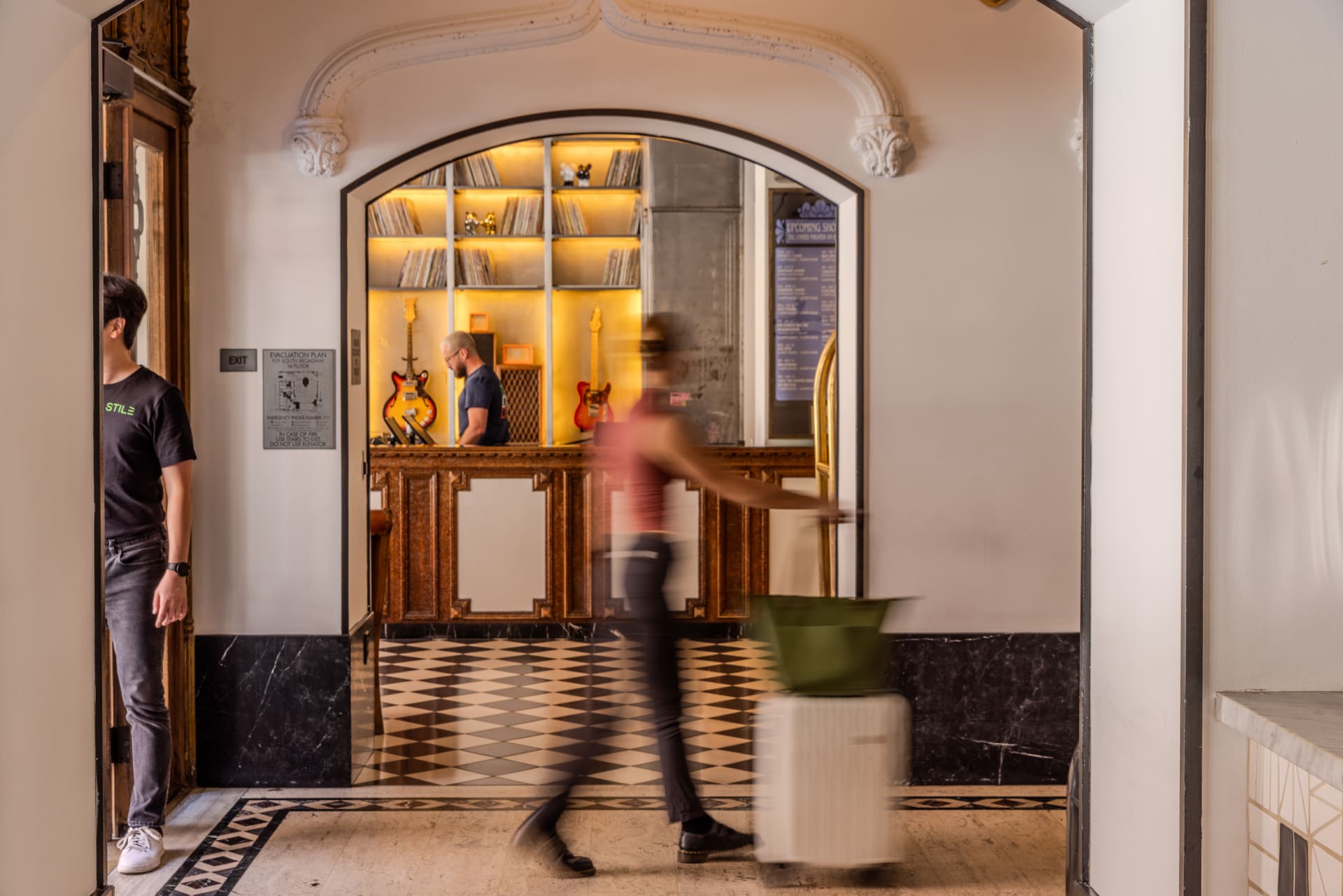
What are some of the biggest lessons you’ve learned about the intersection of hospitality and technology throughout your career?
Early in my career in hotels, my colleagues and I would always joke about the future of hotels and question why we got into hospitality because ultimately, our jobs will one day be replaced by robots. Obviously, I was being facetious, but I did have some concerns when a hotel I was at decided to install self-check-in kiosks. I thought to myself “What’s the point of having a Front Desk staff if everybody is going to go check in on the kiosks?” I was very ill-informed about technology and the fact that it can really enhance hospitality, but it can’t replace hospitality.
The key is to really hear from travelers in different markets and purpose of visits as to what they want and expect out of their travels and hotel experiences. Even a hotel who has no desire to have a similar business model as Kasa, can agree that there are many advantages to implementing technology into their daily operations. We see Property Management Systems across the board evolve into these much more simple, visually appealing, more efficient programs than we did even 5-10 years ago. AI has also become an incredible tool in hotels, from marketing and revenue management to guest services.
To answer your question, the biggest lesson I have learned is that the presence of technology in hotels does not create a less hospitable experience.
What excites you most about the future of the hospitality industry, and what role do you see technology playing in its continued evolution?
While I love all hotels; large or small, luxury or casual, there really is this trend of lifestyle hotels winning a lot of people over. STILE is not luxury, and we don’t try to sell ourselves as such. What we do sell ourselves as is artistic, creative and technological. It’s nice to see people appreciate hotels that aren’t just known for a luxury experience, but more so the overall experience you have and the memories you make at the property. I think technology is something that everybody has gotten relatively comfortable with by this point, and we are just beginning to understand what exciting things hotels can do to be more tech-forward and ultimately, efficient. I think the sky is the limit when it comes to what can be done with tech in hotels, and I’m excited to see where we go from here!
